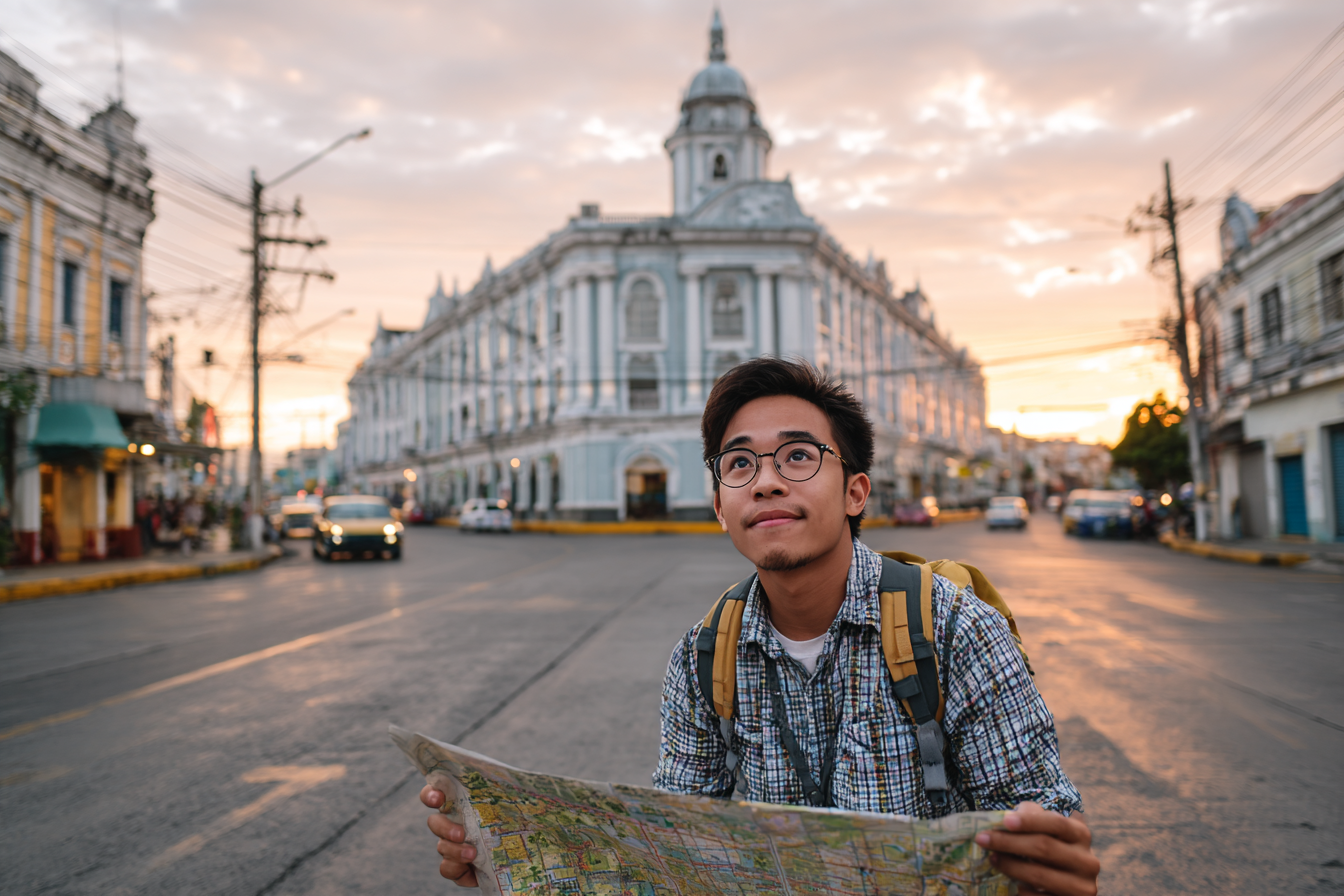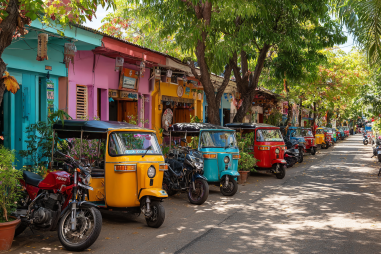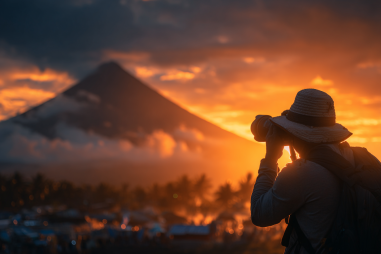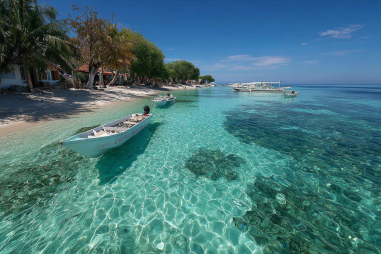Dumaguete, often called the “City of Gentle People,” is a charming destination known for its warm hospitality, vibrant culture, and scenic beauty. Whether you’re planning a quick getaway or an extended stay, being well-prepared can make your trip to Dumaguete both safe and memorable. To help you make the most of your visit, here are essential travel tips covering safety, cultural etiquette, health considerations, transportation, money matters, packing essentials, and emergency contacts.
General Safety Advice
While Dumaguete is generally considered safe for tourists, it’s always wise to remain vigilant and follow basic safety precautions. Petty crimes such as pickpocketing and bag snatching can occur, especially in crowded areas and markets. Keep your valuables secure and avoid flashing expensive belongings like jewelry, cameras, or large amounts of cash. Using a money belt or a secure crossbody bag can reduce the risk of theft.
At night, stick to well-lit and busy areas. Avoid walking alone in secluded parts of the city or along poorly lit streets. If you’re planning to explore off-the-beaten-path attractions or remote beaches, it’s best to go with a local guide or in a group. Always inform someone about your itinerary and expected return time.
Be cautious when accepting food or drinks from strangers and never leave your belongings unattended, especially when dining or resting at cafes and beaches. Lastly, trust your instincts — if something feels off, remove yourself from the situation calmly and quickly.
Cultural Customs and Etiquette
Dumaguete’s friendly locals are proud of their culture and traditions, so showing respect will go a long way in creating positive interactions. Filipinos are known for their warm hospitality, but being mindful of cultural nuances helps deepen your appreciation for the place.
When greeting someone, a simple smile and a “Hello” or “Kumusta?” (which means “How are you?”) is appreciated. When entering homes or certain establishments, removing your shoes is a common courtesy. Be polite and avoid raising your voice in public; Filipinos generally maintain a calm and respectful manner.
Dress modestly when visiting religious sites such as churches or temples. Wearing shorts, sleeveless tops, or revealing clothing might be considered disrespectful in these contexts. If you’re invited to a home, bringing a small token of appreciation, like a souvenir or something edible, is a thoughtful gesture.
Also, using your right hand (or both hands) to give or receive items is considered polite. Avoid pointing directly at people or places, and never touch someone’s head, as it’s considered the most sacred part of the body in Filipino culture.
Health and Vaccination Tips
Before traveling to Dumaguete, make sure your routine vaccinations are up to date, including tetanus, diphtheria, and measles. Although Dumaguete is not considered a high-risk area for severe diseases, it’s advisable to consult your healthcare provider about getting vaccinations for hepatitis A and typhoid, especially if you plan to eat street food or spend time in rural areas.
Travel insurance that covers medical emergencies is highly recommended. In case of sudden illness or injury, local hospitals and clinics are available, but having insurance will ease any financial burden.
To avoid mosquito-borne diseases like dengue fever, wear long sleeves and pants during the evening, use insect repellent containing DEET, and sleep under mosquito nets when possible. Drink bottled or filtered water to prevent stomach issues, and be cautious with ice or uncooked food that may not have been prepared hygienically.
Transportation Do’s and Don’ts
Getting around Dumaguete is relatively convenient, with several transportation options available, each with its own dos and don’ts:
- Tricycles: These are the most common and affordable mode of transport for short distances within the city. Always agree on the fare before starting your journey to avoid misunderstandings. It’s customary to tip your driver a small amount for good service, but do so at your discretion.
- Jeepneys: Popular for longer trips around the province, jeepneys follow set routes but can be crowded. Hold your belongings close to you and keep an eye on your things. Pay the fare directly to the conductor and expect the ride to be lively and social.
- Motorbike taxis: These are convenient but speed and safety can be concerns. Always wear a helmet, and if you’re unfamiliar with local traffic conditions, it might be safer to opt for other transport types.
- Car rentals: Renting a car or scooter offers freedom to explore at your own pace, but ensure you have a valid driver’s license. Check the vehicle condition thoroughly before renting and avoid driving at night unless you’re confident on local roads.
Traffic rules in Dumaguete may differ from your home country, so be observant and cautious. During peak hours, traffic jams can occur, so plan accordingly.
Currency and Payment Methods
The official currency in Dumaguete, like the rest of the Philippines, is the Philippine Peso (PHP). Cash is king in most places, especially in local markets, tricycles, and small restaurants, so carrying enough pesos is important. Many smaller establishments do not accept credit or debit cards.
ATMs are available in the city center and at major banks. It’s wise to withdraw larger amounts to minimize ATM fees and limit frequent trips to cash machines. Inform your bank of your travel plans beforehand to avoid card blocks due to suspicious activity.
For safety reasons, avoid carrying all your cash at once. Using a money belt or distributing your cash in different secure places is recommended. While mobile payment apps like GCash and PayMaya are growing in popularity, they may not be accepted everywhere unless you’re in a highly urbanized area.
Packing Essentials
Packing wisely for your Dumaguete trip can ensure comfort and convenience. Here’s a list of essentials to consider:
- Clothing: Light, breathable clothes suited for a tropical climate. Include swimwear, a light rain jacket, and comfortable walking shoes or sandals.
- Sun protection: High-SPF sunscreen, sunglasses, and a wide-brimmed hat are essentials to protect yourself from the strong sun.
- Insect repellent: Especially important when visiting natural areas or during evening hours.
- Reusable water bottle: Stay hydrated throughout your explorations and reduce plastic waste.
- Basic first aid kit: Include band-aids, antiseptic wipes, pain relievers, and any personal medication.
- Electronics and adapters: Chargers, power banks, and plug adapters suited for Philippine outlets (usually type A, B, or C).
- Copies of important documents: Keep both physical and digital copies of your passport, visa, identification, and travel insurance.
Additionally, carrying a small daypack will help you keep your daily essentials organized during sightseeing and excursions.
Emergency Contacts and Resources
Knowing emergency numbers and local resources can give you peace of mind when traveling in Dumaguete:
- Police: 117 or 0966-555-0111 (local police offices)
- Medical emergencies: 911 for ambulance and hospital emergencies
- Fire department: 911
- Tourist assistance: Contact the local tourism office or your hotel reception for guidance and help.
- Nearest hospitals: Silliman University Medical Center and Dumaguete City Emergency Hospital
Save these contact numbers on your phone and keep a written copy in your belongings. If you have travel insurance, keep the emergency hotline handy as well for quick assistance.
By keeping these practical Dumaguete travel tips in mind, you can enjoy a safe, respectful, and hassle-free stay in this delightful city. With a little preparation, your visit will be filled with wonderful memories and enriching experiences that truly capture the gentle spirit of Dumaguete.







